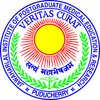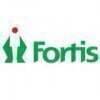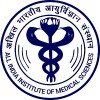Senior Resident
20+ Senior Resident Interview Questions and Answers

Asked in G.B.Pant Hospital

Q. What are the clinical skills required in neurosurgery?
Neurosurgery requires a blend of technical, diagnostic, and interpersonal skills for effective patient care.
Surgical skills: Proficiency in performing complex procedures like craniotomies and spinal surgeries.
Diagnostic skills: Ability to interpret neuroimaging (CT, MRI) for accurate diagnosis.
Patient assessment: Conducting thorough neurological examinations to evaluate function.
Communication: Explaining procedures and risks to patients and families clearly.
Team collaboration...read more

Asked in G.B.Pant Hospital

Q. What are the common operations performed in neurosurgery?
Common neurosurgery operations include procedures for brain tumors, trauma, and spinal disorders.
Craniotomy: Surgical opening of the skull to access the brain, often for tumor removal.
Laminectomy: Removal of a portion of the vertebra to relieve pressure on the spinal cord.
Aneurysm clipping: A procedure to secure an aneurysm in the brain to prevent rupture.
Deep brain stimulation: Implantation of electrodes to treat movement disorders like Parkinson's disease.
Spinal fusion: Joi...read more
Senior Resident Interview Questions and Answers for Freshers

Asked in Clove Dental

Q. What is the difference between traditional and self-ligating braces?
Traditional braces use elastic ties, while self-ligating braces have a built-in mechanism for wire attachment, improving comfort and efficiency.
Traditional braces use elastic ligatures to hold the archwire, which can create friction.
Self-ligating braces have a sliding mechanism that allows the wire to move freely, reducing friction.
Traditional braces often require more frequent adjustments due to the elastic ties wearing out.
Self-ligating braces can lead to shorter treatment ...read more
Asked in Govind Ballabh Pant Hospital

Q. What is your knowledge of neurointervention?
Neurointervention involves minimally invasive procedures to treat neurological disorders, often using imaging guidance.
Neurointervention includes procedures like endovascular coiling for aneurysms.
It also encompasses stenting for carotid artery stenosis.
Techniques such as mechanical thrombectomy are used for acute ischemic stroke.
Neurointerventionalists utilize imaging modalities like CT and MRI for guidance.

Asked in JIPMER

Q. What is a placenta accreta care bundle?
Placenta accreta care bundle is a set of protocols to manage the condition of placenta accreta.
It involves a multidisciplinary team approach
It includes antenatal diagnosis and planning for delivery
It involves blood conservation strategies and surgical techniques
It aims to reduce maternal morbidity and mortality
It may include preoperative embolization of uterine arteries
It may involve hysterectomy as a last resort
Asked in Babu Jagjivan Ram Memorial Hospital

Q. Do you have all the required documents?
Yes, I have all valid documents required for the position of Senior Resident.
Yes, I have all necessary identification documents such as passport, driver's license, and social security card.
I also have all relevant educational certificates and transcripts.
Additionally, I have any required professional certifications or licenses.
I can provide letters of recommendation and proof of work experience if needed.
Senior Resident Jobs



Asked in Babu Jagjivan Ram Memorial Hospital

Q. Are you trained to do autopsies?
Yes, I am trained to perform autopsies as part of my medical training.
Trained in medical school to perform autopsies
Have experience conducting autopsies during residency
Familiar with the procedures and protocols involved in autopsies

Asked in G.B.Pant Hospital

Q. What is your knowledge of neurosurgery?
Neurosurgery is a specialized field focusing on surgical treatment of brain, spine, and nervous system disorders.
Neurosurgery involves procedures like craniotomy for brain tumors.
Spinal surgeries, such as discectomy, address herniated discs.
Endovascular neurosurgery treats vascular issues like aneurysms.
Functional neurosurgery includes deep brain stimulation for Parkinson's disease.
Trauma surgery addresses head injuries and spinal cord damage.
Share interview questions and help millions of jobseekers 🌟


Asked in Clove Dental

Q. How do you prepare a patient for an implant?
Converting a patient for an implant involves assessment, planning, and ensuring readiness for the procedure.
Conduct a thorough medical history and physical examination to assess suitability.
Perform necessary imaging studies (e.g., X-rays, CT scans) to evaluate bone structure.
Discuss the procedure, risks, and benefits with the patient to obtain informed consent.
Ensure the patient is free from infections and has optimal oral hygiene.
Plan the implant placement considering the pa...read more

Asked in Clove Dental

Q. What are the different types of implants?
Implants are medical devices placed inside or on the body to replace missing biological structures or enhance functionality.
Dental Implants: Used to replace missing teeth, typically made of titanium.
Orthopedic Implants: Include screws, plates, and rods for bone stabilization.
Cardiac Implants: Such as pacemakers and stents for heart conditions.
Cochlear Implants: Devices that provide a sense of sound to individuals with hearing loss.
Breast Implants: Used in cosmetic surgery for...read more

Asked in JIPMER

Q. What is a flexion point?
Flexion point is the point at which a joint changes direction from flexion to extension or vice versa.
Flexion point is also known as the point of inflection.
It is important to identify the flexion point during joint range of motion assessments.
Examples of flexion points include the knee joint during walking or the elbow joint during bicep curls.
Asked in Gmc Srinagar Hospital

Q. Incidence of deformity in distal tibia fractures
The incidence of deformity in distal tibia fractures varies depending on the severity and type of fracture.
The incidence of deformity in distal tibia fractures can range from 10-30%.
Factors such as the mechanism of injury, degree of displacement, and quality of reduction can influence the likelihood of deformity.
Deformities may include malalignment, shortening, angulation, or rotational issues.
Surgical intervention may be required to correct severe deformities.
Regular follow-...read more

Asked in Fortis Healthcare

Q. What do you expect to learn?
I expect to learn advanced clinical skills, enhance my decision-making abilities, and deepen my understanding of patient care.
Gain hands-on experience in complex procedures, such as surgeries or advanced diagnostics.
Enhance my ability to make critical decisions under pressure, especially in emergency situations.
Learn to manage multidisciplinary teams effectively, improving collaboration in patient care.
Deepen my understanding of the latest research and treatment protocols in ...read more

Q. What is the baroreceptor response?
Baroreceptor response is the body's mechanism to regulate blood pressure through the detection of changes in blood vessel stretch.
Baroreceptors are specialized nerve endings located in the walls of certain blood vessels, such as the carotid sinus and aortic arch.
When blood pressure increases, the baroreceptors detect the stretch and send signals to the brain to decrease heart rate and dilate blood vessels, resulting in a decrease in blood pressure.
Conversely, when blood press...read more

Asked in Clove Dental

Q. How do you perform IDP and DP?
IDP (Individual Development Plan) and DP (Development Plan) guide personal and professional growth through structured goals.
IDP focuses on individual career goals, while DP is often broader, encompassing team or organizational objectives.
Example of IDP: A resident sets a goal to improve surgical skills by attending workshops and seeking mentorship.
Example of DP: A department outlines a plan to enhance patient care through staff training and new protocols.
Both plans should inc...read more

Asked in Wonder Home Finance

Q. How many years of experience do you have?
I have over 5 years of experience in clinical settings, focusing on patient care and medical research.
Completed a 3-year residency in internal medicine, gaining hands-on experience in patient management.
Worked for 2 years in a specialized cardiology unit, enhancing my skills in diagnosing and treating heart conditions.
Participated in various research projects, contributing to publications in peer-reviewed medical journals.

Asked in Clove Dental

Q. What are the steps for performing a composite restoration?
Composite restoration involves repairing a tooth using a tooth-colored resin material for aesthetics and function.
1. Diagnosis: Assess the extent of decay or damage to determine the need for restoration.
2. Anesthesia: Administer local anesthesia to ensure patient comfort during the procedure.
3. Tooth Preparation: Remove decayed tissue and shape the cavity for optimal bonding.
4. Etching: Apply an etching gel to the enamel and dentin to enhance adhesion.
5. Bonding Agent: Apply ...read more

Asked in Max Healthcare

Q. How do you manage DKA in children?
Management of DKA in children
Assess severity of DKA using clinical and laboratory parameters
Initiate fluid resuscitation with isotonic saline
Administer insulin therapy to correct hyperglycemia and ketoacidosis
Monitor electrolyte levels and correct any imbalances
Treat any underlying precipitating factors
Consider ICU admission for severe cases

Asked in Manipal Hospitals

Q. Management of DKA
Management of DKA involves fluid and electrolyte replacement, insulin therapy, and identification and treatment of underlying causes.
Assess severity of DKA using clinical and laboratory parameters
Start fluid replacement with normal saline at 15-20 ml/kg/hr
Initiate insulin therapy with a continuous infusion of regular insulin
Monitor blood glucose, electrolytes, and acid-base status frequently
Identify and treat underlying causes such as infection or noncompliance with insulin t...read more
Asked in Apna Chemist

Q. Composition of augmentin
Augmentin is a combination antibiotic containing amoxicillin and clavulanate potassium, used to treat various infections.
Amoxicillin: A penicillin antibiotic effective against a range of bacteria.
Clavulanate potassium: A beta-lactamase inhibitor that protects amoxicillin from degradation.
Commonly used for respiratory infections, urinary tract infections, and skin infections.
Available in various forms: tablets, oral suspension, and injectable.

Asked in Dayanand Medical College & Hospital

Q. NRP algorithm
The NRP algorithm is a standardized approach to neonatal resuscitation.
The algorithm is based on the ABCs of resuscitation: Airway, Breathing, and Circulation.
It includes steps such as providing positive pressure ventilation, chest compressions, and administering medications if necessary.
The algorithm is regularly updated to reflect the latest research and best practices.
It is used in a variety of settings, including delivery rooms, neonatal intensive care units, and emergenc...read more
Interview Questions of Similar Designations
Interview Experiences of Popular Companies






Calculate your in-hand salary
Confused about how your in-hand salary is calculated? Enter your annual salary (CTC) and get your in-hand salary


Reviews
Interviews
Salaries
Users










